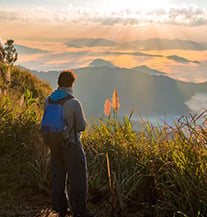Sign in
Contact
-
MenuBack
-
Our Sports
-
-
-
-
-
- Ski clothing
-
- Children's fleece
- Children's ski pants
- Men's fleeces
- Men's Softshell Jacket
- Women's fleeces
- Women's Softshell Jacket
-
-
-
-
-
-
-
- Cross-country ski clothing
-
- Men's fleeces
- Men's Softshell Jacket
- Ski touring gloves
- Ski touring socks
- Women's fleeces
- Women's Softshell Jacket
-
-
-
-
-
-
-
- Cross-country ski clothing
-
- Cross-country ski gloves
- Cross-country socks
- Men's lightweight down jacket
- Men's Softshell Jacket
- Women's lightweight down jacket
- Women's Softshell Jacket
-
-
-
-
-
-
-
- Snowboard clothing
-
- Men's Alpine ski jackets
- Men's alpine ski pants
- Men's fleeces
- Men's ski jacket
- Men's Softshell Jacket
- Women's Alpine ski jackets
- Women's alpine ski pants
- Women's fleeces
- Women's ski jacket
- Women's Softshell Jacket
-
-
-
-
-
-
-
-
- Mountaineering Clothing
-
- Climbing gloves
- Men's fleeces
- Men's Softshell Jacket
- Men's winter pants
- Women's fleeces
- Women's Softshell Jacket
- Women's winter pants
-
-
-
-
-
-
-
- Climbing clothes
-
- Climbing gloves
- Men's climbing pants
- Men's climbing T-shirts
- Men's Softshell Jacket
- Women's climbing pants
- Women's climbing T-shirts
- Women's Softshell Jacket
-
-
-
-
-
-
-
-
-
-
- Hiking clothes
-
- Hiking caps
- Hiking hats
- Hiking socks
- Men's hiking jackets
- Men's hiking pants
- Men's hiking T-shirts
- Men's Softshell Jacket
- Women's hiking jackets
- Women's hiking pants
- Women's hiking T-shirts
- Women's Softshell Jacket
-
-
-
-
-
-
- Trail shoe
-
-
-
- Trail clothing
-
- Men's tank tops
- Men's trail jackets
- Men's trail shorts
- Men's trail T-shirts
- Men's trail tights
- Men's windproof jackets
- Trail caps
- Trail socks
- Women's tank tops
- Women's trail jackets
- Women's trail shorts
- Women's trail T-shirts
- Women's trail tights
- Women's windproof jackets
-
-
-
-
-
-
-
- Running clothes
-
- Women's technical bra
- Running socks
- Trail caps
- Men's trail jackets
- Women's trail jackets
- Women's trail shorts
- Men's trail shorts
- Men's trail T-shirts
- Women's trail T-shirts
- Men's tank tops
- Men's windproof jackets
- Women's windproof jackets
-
-
-
-
-
-
-
- Bike clothing
-
- Bike cap
- Bike gloves
- Bike socks
-
-
-
-
-
-
-
- Mountain bike clothing
-
- Bike cap
- Bike gloves
- Bike socks
- Men's cycling jacket
- Men's cycling shorts
- Men's cycling shorts
- Women's cycling jacket
- Women's cycling shorts
- Women's cycling shorts
-
-
-
-
-
-
-
-
- Lifestyle clothing
-
- Lifestyle Caps
- Lifestyle Gloves
- Lifestyle socks
- Men's shirts
- Men's summer pants
- Women's summer pants
- Men's sweatshirts
- Women's sweatshirts
- Men's Lifestyle T-shirts
- Women's lifestyle T-shirts
- Men's winter jackets
- Women's winter jackets
-
-
-
-
Shoes
-
-
-
-
Snow shoes
- Après Ski
- Gaiters
- Shoe chains
- Winter boots
-
Snow shoes
-
- Ski boots
-
- Ski touring boots
-
-
Cross-country ski boots
- Classic
- Skating
-
Cross-country ski boots
-
- Snowboard Boots
-
- Canyoning shoes
-
-
-
-
Hiking shoes
- Flip-flops
- Hiking boots
- Hiking sandals
- Hiking shoe accessories
- Insoles for hiking boots
- Low hiking shoes
-
Hiking shoes
-
-
Mountaineering shoes
- Approach Shoes
- Mountain boots
- Mountaineering boots
-
Mountaineering shoes
-
- Trail shoe
-
-
Running shoe
- Running shoes
- Sandal recovery
- Shoe sole
-
Running shoe
-
-
-
-
Climbing shoes
- Lace-up climbing slipper
- Velcro climbing shoes
-
Climbing shoes
-
-
Bicycle shoes
- Boa cycling shoe
- Classic cycling shoe
- On shoes
-
Bicycle shoes
-
-
Mountain bike shoes
- Boa MTB shoe
- Classic MTB shoes
-
Mountain bike shoes
-
-
Lifestyle shoes
- Flip-flops
- Lifestyle shoes
- Sandals
- Slippers
- Sneakers
-
Lifestyle shoes
-
-
-
-
Clothing
-
-
-
Winter Clothing
-
Trail Clothing
-
-
-
Outdoor Clothing
-
-
-
Lifestyle Clothing
-
-
-
-
-
Winter Clothing
-
Trail Clothing
-
-
-
Outdoor Clothing
-
-
-
Lifestyle Clothing
-
-
-
-
-
Winter Clothing
-
-
-
Outdoor Clothing
-
-
-
Lifestyle Clothing
-
-
-
-
-
-
Brands
-
- Sale
- About us
- Blog
-
Eco-Friendly
-
1. The different types of camping mattress
Self-inflating mattresses
Self-inflating mattresses represent an ideal compromise between comfort and practicality. Made from compressed open-cell foam and encased in a hermetically sealed envelope, they inflate partially by themselves when the valve is opened. All the camper has to do is add a few puffs to adjust the firmness. These mattresses offer good insulation and are particularly appreciated in cold environments. Their weight and volume can vary, so it's essential to choose according to the type of expedition planned (for example, a lighter model for long-distance trekking).
Inflatable mattresses
Lighter than self-inflating models, inflatable mattresses require greater effort to inflate, but often offer greater comfort and adaptability to the sleeper's morphology. They are preferable for activities where weight and volume are key selection criteria. However, their insulation is generally inferior, unless they are fitted with integrated insulation systems, which makes them less suitable for very cold environments without extra precautions.
Foam mattresses
Foam mattresses are the simplest and often the most durable. They consist of layers of dense foam that can be folded or rolled. Extremely resistant, they are impervious to perforation, but offer less comfort and variable insulation depending on thickness. This type of mattress is often used for activities where robustness is a priority, such as kayaking or mountaineering, where the risk of material perforation is higher.
2. Selection criteria for a camping mattress
Comfort and support
Your choice of mattress should be guided by your body type and personal comfort preferences. Side sleepers will need a thicker mattress to prevent hips and shoulders from touching the ground, while back sleepers may opt for thinner models.
Thermal insulation
The R-value index measures a mattress's ability to insulate against the cold of the ground. A higher rating means better insulation, which is crucial for camping in mountain or winter conditions. We recommend choosing a mattress with an R-value adapted to the lowest temperature you can expect.
Weight and bulk
For hikers and mountaineers, weight and bulk are decisive factors. It's essential to strike a balance between comfort and practicality. Ultra-light mattresses are often less comfortable, but can make a big difference to ease of transport and energy management on long traverses.
Durability and ease of maintenance
Camping mattresses must be able to resist abrasion and tearing. Materials such as reinforced nylon are commonly used for their robustness. Make sure, too, that the mattress is easy to clean and repair if necessary.
3. Practical recommendations for choosing a camping mattress
Test before you buy
If possible, try out different mattresses in store, or consult detailed reviews to understand feedback from experiences similar to your planned activities.
Don't neglect maintenance
Good maintenance can considerably extend the life of your mattress. Store it deflated and flat if possible, and clean it regularly according to the manufacturer's instructions.
Prepare a repair kit
Even with the most robust mattress, accidents can happen. A repair kit can be indispensable, especially in isolated environments.
By following these tips, you'll be better equipped to choose a camping mattress that meets your specific needs, ensuring well-deserved nights of rest in the great outdoors.





































